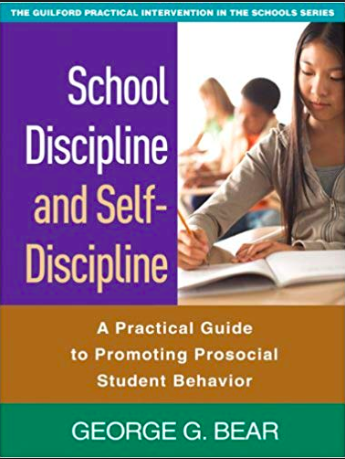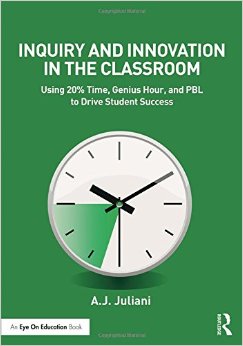 I had been waiting a long time to read this book, as it was recommended by my classroom environment professor at UBC. The book first outlines what Social and Emotional Learning (SEL) is and the benefits and drawbacks of using this exclusively for school discipline, and it does the same for Positive Behaviour Support (PBS). Bear addresses how a marriage of the two will result in better student self-management and overall better student behaviour.
I had been waiting a long time to read this book, as it was recommended by my classroom environment professor at UBC. The book first outlines what Social and Emotional Learning (SEL) is and the benefits and drawbacks of using this exclusively for school discipline, and it does the same for Positive Behaviour Support (PBS). Bear addresses how a marriage of the two will result in better student self-management and overall better student behaviour.
This book shed light on a lot of practical challenges for me, such as reasons students have poor behaviour and the difference between authoritarian, authoritative and permissive classroom management. The book also includes practical approaches and strategies to implement the steps required to develop SEL competencies, and develop self-discipline. This includes but is not limited to recommendations on how to strategically use praise/rewards, detailed outlines on how to dialogue and problem solve during behavioural infractions, recommendations on how and when to contact parents, and specific strategies to manage behaviour in a more authoritative manner.
Importantly, the book gave me many ideas on how to set up the routines in my classroom, systems to have in place when students are not meeting expectations, how to monitor behaviour, and what to include in monthly class surveys. Based on the readings, I created a monthly survey (from which I will create visual charts/graphs to show progress), and several reflection forms for key areas of concern: missed homework, misbehaviour, and poor performance. Based on student need, the forms are not required to be filled out in writing, they can be done through dialogue. What is important about having them is to guide their reflection.
“Your environment may influence your behaviour, but it is your choices which determine your behaviour.” – George Bear
 Follow
Follow Providing students with autonomy and ownership over their learning enhances motivation, and encourages innovation through purposeful and passion-driven goal setting.
Providing students with autonomy and ownership over their learning enhances motivation, and encourages innovation through purposeful and passion-driven goal setting.  Carol Dweck’s research on
Carol Dweck’s research on